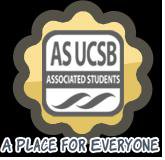Cheyenne Johnson
Staff Writer
Associated Students recently passed a bill forbidding Crisis Pregnancy Centers from advertising on campus. The bill was authored by newly elected Internal Vice President Mayra Segovia and First Representative Pro Tempore Nate Walter, and addresses the concerns over the false information about abortion, sex and contraceptives that CPCs offer to women at these centers.
There are estimated to be 4,000 CPCs and 750 abortion clinics in the United States. CPCs are typically run and organized by pro-life Christian groups and have been accused of giving out false information. This includes stating a cause and effect relationship between abortion and breast cancer, abortion and mental health problems and abortion and health complications in regards to future childbearing after the procedure.
CPCs, particularly the local CPC, Network Medical, came under scrutiny in February after women on campus noticed CPC advertisements in the University of California Santa Barbara’s quarterly coupon book. A group of female students in coordination with the organization End Fake Clinics presented to Legislative Council information about these centers, with a particular concern addressed to the advertised, “free confidential medical services.” Segovia and Walter composed the bill shortly after this presentation.
“There are more than twenty Crisis Pregnancy Centers in the tri-county region, which is more than twice the number of clinics that provide comprehensive reproductive health care,” reads the bill. “Our peers should not be misled by the use of false advertisement and inaccurate medical information.”
The successfully passed bill will now limit the advertising ability these groups have to the UCSB campus and community.
“AS UCSB and all of its Boards, Commissions, and Committees will not support or advertise for Network Medical or other Crisis Pregnancy Centers,” concludes the bill.
Laury Oaks, UCSB Associate Professor of Feminist Studies and a researcher on women’s health and reproductive politics, said the CPC movement is one piece of the broader anti-abortion movement that has not received the media and social attention it deserves.
“I avidly support the AS Senate resolution,” said Oaks. “The clear wording to appear on advertising, ‘This facility does not provide abortion, birth control, or comprehensive information regarding sexual and reproductive health,’ educates students and allows each individual to determine whether or not to go to a crisis pregnancy center. This wording, and the powerful campus activism by students with End Fake Clinics, will serve as a model for other campuses in the U.S. and other countries.”
Ziad Munson, a sociologist who studied the anti-abortion movement, noted in his novel, “The Making of Pro-Life Activists,” that while the work crisis pregnancy centers do “is perhaps the least publicized and least understood stream of the [anti-abortion] movement… More individuals are involved in volunteering more time in the individual outreach stream than in any other movement activity.”
The CPC Bill recently passed by AS is not the first attempt to limit CPCs and their campaign. New York City, Baltimore, Montgomery County, Maryland and Austin, Texas have passed laws that require CPCs to post signs about the nature of their services. Congressman Henry Waxman investigated taxpayer-funded CPCs in 2006 and compiled a report on his findings.
“The vast majority of pregnancy resource centers contacted for this report, however, provided false or misleading information about the health risks of an abortion,” stated the report. “This may advance the mission of the pregnancy resource centers, which are typically pro-life organizations dedicated to preventing abortion, but it is an inappropriate public health practice.”












Comments are closed.